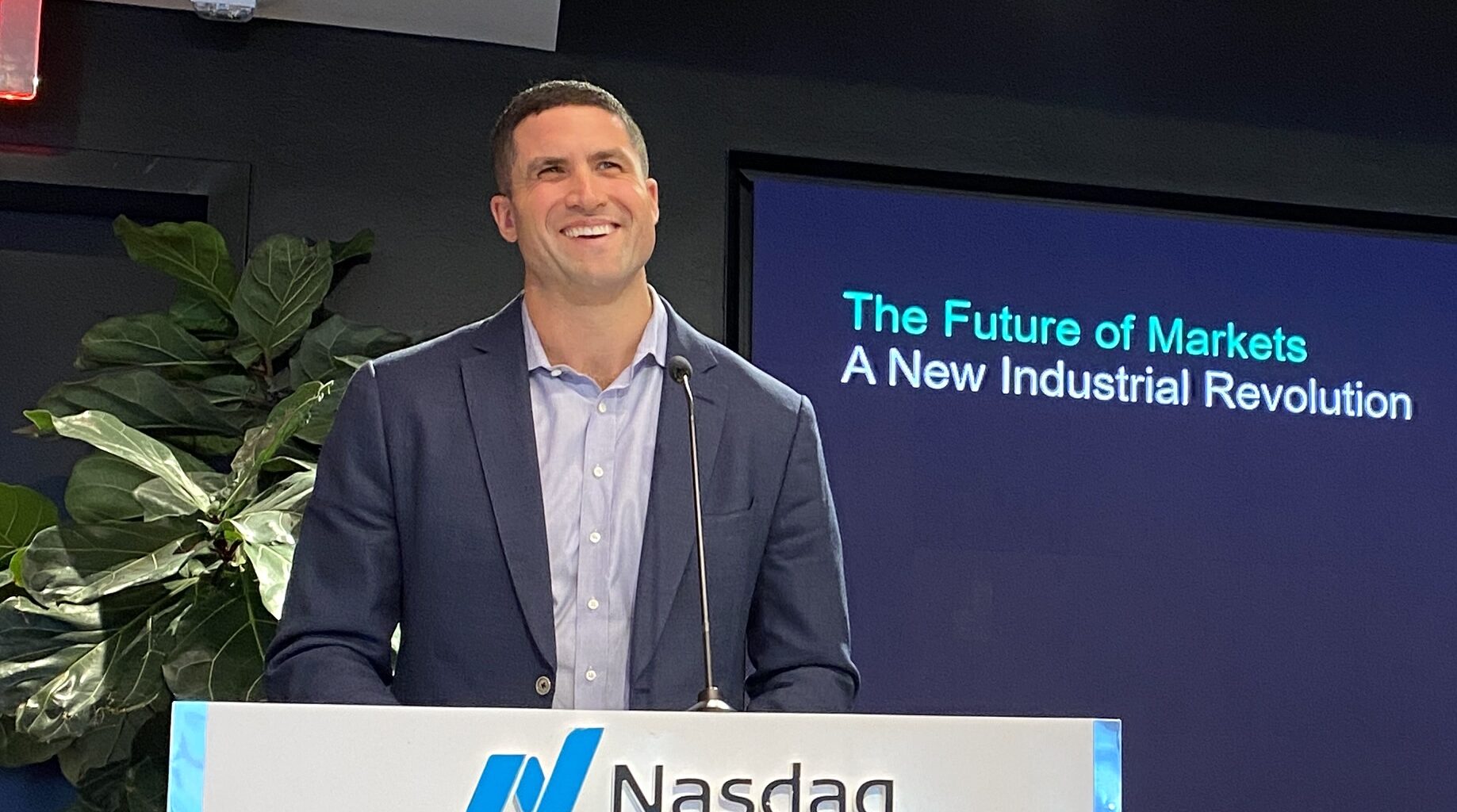About six months after raising $50 million, climate technology startup Crux is acquiring an AI-powered due diligence platform to enhance its own tools.
Crux announced today it will purchase the Boston firm Daedaline. Founded in 2023, Crux is building software to make the systems related to investment in clean energy projects more efficient.
“People just want to do these deals as well and as quickly as possible, and they want to use whatever tools are best available to them to do it.”
Alfred Johnson, Crux
The company’s platform will repurpose Daedaline’s software to streamline due diligence in financing, per Crux’s DC-based CEO and cofounder Alfred Johnson. That refers to the process of verifying information and assessing potential risks before a significant transaction. Johnson believes that undertaking is the most arduous part of getting energy infrastructure investment.
“People just want to do these deals as well and as quickly as possible,” Johnson told Technical.ly in an exclusive interview, “and they want to use whatever tools are best available to them to do it.”
Johnson, whose company’s prior funders include Lowercarbon Capital and Andreessen Horowitz, declined to disclose the financial details of the deal and Crux’s valuation.
The Daedaline brand will be subsumed into Crux with no layoffs, he said. Instead, the New York-headquartered startup’s staff is set to grow from its current near-60 headcount to between 80 and 90 employees by the end of 2025.
 The Crux staff at a recent gathering in New York. (Crux/LinkedIn)
The Crux staff at a recent gathering in New York. (Crux/LinkedIn)
Crux provides tools for negotiating terms sheets and due diligence in its “data room,” a term for its secure portal for sensitive business documents. Crux relaunched the feature in March for its 1,000 developers and investors using the platform, and jumped from 20% to 80% adoption, per Johnson.
This acquisition does not mean an expansion of products or services, but Johnson hopes Daedaline’s software will make associated procedures faster. Crux was considering developing software similar to the Boston startup’s, and Johnson was drawn to Daedaline’s expertise and staff.
Expected success despite political headwinds
Crux’s first product — a marketplace for financial institutions, clean energy developers and tax credit buyers to sell and transfer tax credits‚— was spurred by the Inflation Reduction Act.
Despite President Donald Trump’s efforts to cancel clean energy projects across the country, including targeting states that voted for Democratic nominee Kamala Harris in 2024, Johnson is confident Crux will continue to be successful. The administration has taken specific aim at wind and solar, but is looking to nuclear to address skyrocketing power needs.
The startup also offers more than tax credit-focused tools. Other features focus on debt capital offerings, which can also fund these energy projects.
“The real driver of that market is the fact that electricity prices have gone up, and energy demand is higher than it’s ever been,” said Johnson, who previously worked in the Department of the Treasury during the Biden presidency. “So, a ton of manufacturing infrastructure is still required.”
Economic benefits for streamlined diligence
A typical tax credit transaction can take three-to-12 weeks of diligence, hundreds of hours and thousands in cash, Johnson explained. That’s why this acquisition is important.
“The more we can help [clients] with that process, extract information, deliver insights, support it with context,” Johnson said, “the better decisions they can make the more rapidly.”
The AI software will extract context and key information for users, he said. For example, in deal documents, the technology can provide guidance like recommendations to swap out clauses.
This by no means replaces lawyers, he explained.
“People are still going to do their diligence,” per Johnson. “This is to support that being as efficient and intelligent as possible.”
